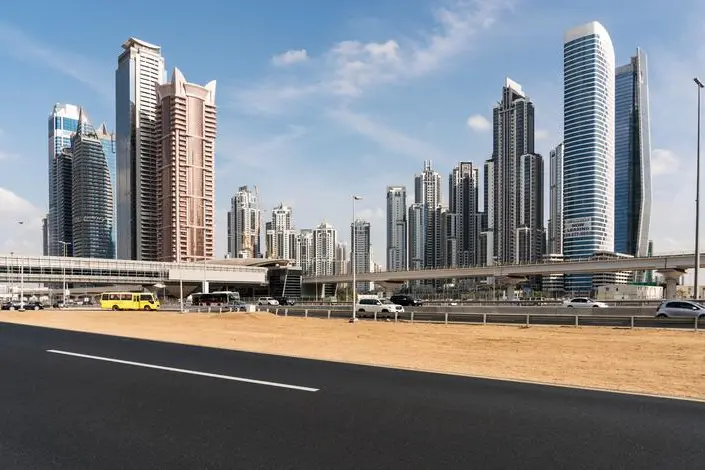PHOTO
The Dubai Land Department's (DLD) recent decision to seize the properties and plots of land registered in the name of Schon Properties and its funds deposited in an escrow account reflects how the regulator is going an extra mile to safeguard the rights of investors and buyers.
"The step is aimed at protecting the rights of investors in light of Schon Properties' actions of exploiting investors by refraining from depositing their money in escrow [guarantee] account," the DLD said.
The escrow law was meant to ensure that developers deliver prescribed percentages of construction before drawing down on these funds.
Market stakeholders insist how smaller developers will find it increasingly tough to get finance, thereby resulting in a wave of consolidation in the near future. They also forecast that the gap between actual supply and anticipated supply will get bigger as smaller, under-funded developers struggle to meet handover deadlines.
"The master developers selling land are Nakheel, Emaar, Dubai Properties and Meraas. Informal conversations are already taking place among big developers for smaller players to demonstrate financial close. Until now, they only had to pay the first cheque for a land parcel and the remaining in installments. Now, you will have to show money in the bank or bank facilities," said Hussain Alladin, head of IR and research at Global Capital Partners.
Smaller developers will need to seriously consider cash flows and sources of capital prior to commencing projects. Banks are generally cautious about development finance, therefore funding smaller developers for off-plan projects may prove to slow down in the wake of recent events. This could see a rise in alternative funding vehicles - these could be at higher interest rates or lower loan to value.
"Smaller developers will find it hard to obtain land from master developers unless they can demonstrate healthy financials. Property development is now a specialised industry and no longer for fly-by-night companies," said Mario Volpi, sales and leasing manager at Engel & Völkers.
According to Reidin, there are 1,235 developers registered with the DLD and around 250 of them have active project(s) at the moment. It is estimated that within two years, there will only be less than 50 developers.
"The DLD has worked hard over recent years in improving the transparency of the real estate market, the visibility of transactions and knowledge sharing. Through these recent actions, the DLD shows its commitment to protect the integrity of the market and more important to protect the rights of both developers and purchasers. The message this sends is clear to all developers, regardless of size, that all must act according to the established rules and abide by contracts and commitments," observed Simon Townsend, head of strategic advisory valuation, CBRE.
As new buyers and investors continue to enter the Dubai property market, there is a need to establish safeguards and enforce proper due diligence. Today, irrespective of size, all developers must demonstrate the capacity to complete the project before selling it. Developers need to complete 20 per cent of the project's construction works in order to start an escrow account. They also need to place 20 per cent of the total project value in the escrow. Until recently, they were used to putting up a bank guarantee of the construction value.
"The system is already in place to ensure the security of buyers, so the potential for historic situations repeating themselves is unlikely and thus the recent action by the DLD against a certain developer. The DLD can provide new buyers with a list of recent projects and names of developers of both completed and under-construction projects, confirm escrow accounts and all other property registration functions," explained Elaine Jones, founder and executive chairman, Asteco Property Management.
"The DLD and the Real Estate Regulatory Agency have been very busy over the past few years implementing structures aimed at protecting the investors of Dubai real estate. These practices and procedures are constantly upgraded and amended to take into consideration changes in the market. The measures currently in place are a testimony of transparency and good practice directed at global investors saying, 'Dubai is open for business'," said Volpi.
He added that more joint ventures may be seen as smaller developers realise that sharing profits will be far better than bearing all costs.
"There may be opportunities where there is some consolidation, but this is more likely because of unexpected changes in the market or project affecting potential returns, requiring partners or sharing of resources," reckoned Townsend.
Copyright © 2018 Khaleej Times. All Rights Reserved. Provided by SyndiGate Media Inc. (Syndigate.info).





















